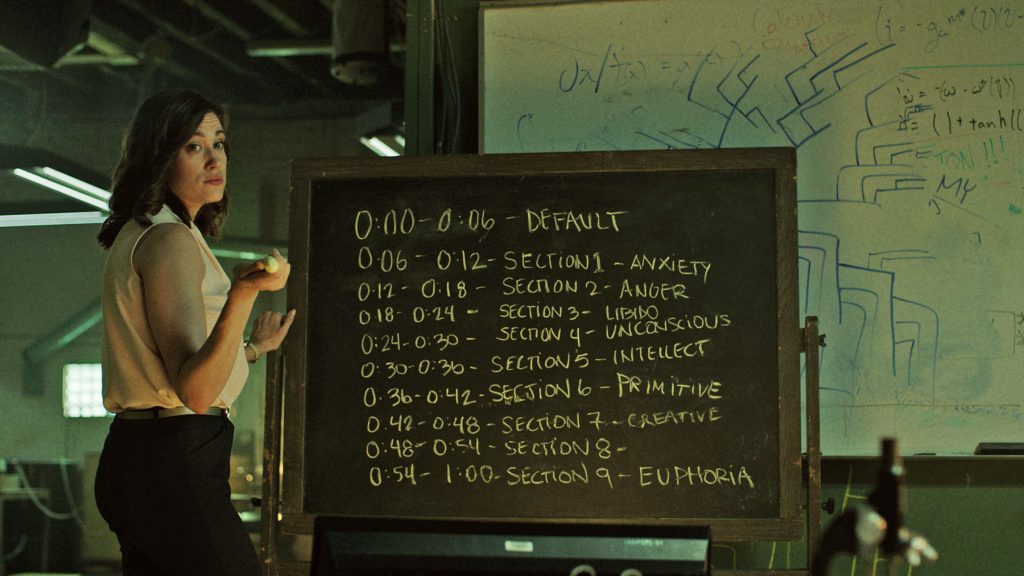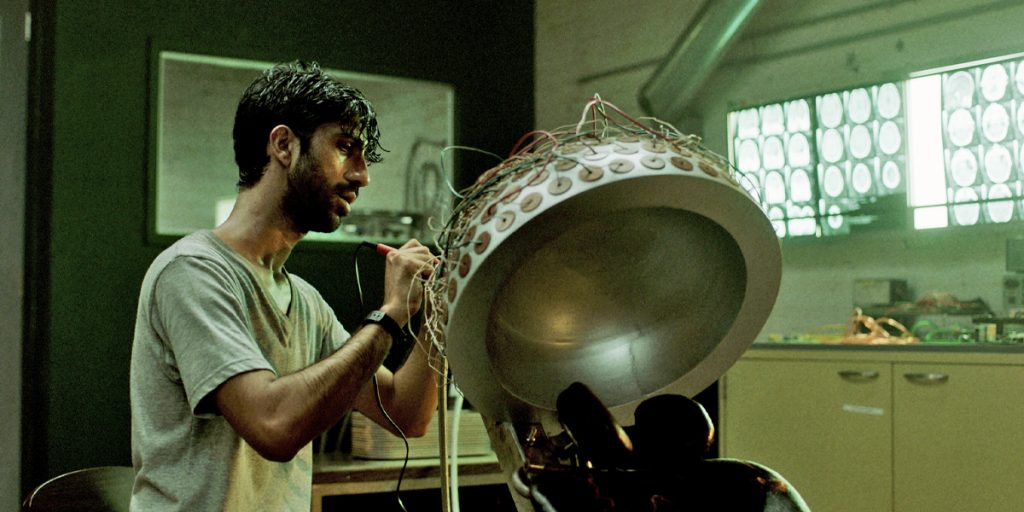Minor Premise combines the best of psychological studies with the worst of action-packed thrillers, in a film where characters develop faster than you can say MPD.
Minor Premise is one of those mind-bending films that stick with you, whether you enjoyed watching them or not. Wanting to surpass his father’s legacy, Ethan (Sathya Sridharan, Bikini Moon, Blind Spot), a young neuroscientist, embarks on a mind-altering experiment which leaves his consciousness split into ten contrasting versions of himself. The film is a thriller to the bone, as Nathan races against time to undo the effects of the experiment, save himself, and protect his scientific breakthrough. Despite his unstable mental condition, colleague and ex-girlfriend Alli (Paton Ashbrook, House of Cards, Shameless) keeps up with Ethan’s erratic behaviour, saving the neuroscientist from himself. Although it is an independent film, Minor Premise truly comes across as a solid debut from talented, up-and-coming film director director Eric Schultz (Premature, Love After Love). However, I could not help but feel a contrast between the story of Minor Premise and its delivery.
The story is played almost entirely in Ethan’s house, adding a sense of claustrophobia to the tense situation. An artistic highlight of the film’s well thought cinematography is the scenes I can only describe as close-up embryonic fluid, which are meant to represent the inside of Ethan’s brains being under stress as he combats against his personality changes. Sridharan’s performance is something to admire, as he convincingly portrays a character whose obsessiveness gains him little to no sympathy. Even before the experiment, he comes across as a lone wolf, whose drive to surpass his father’s scientific discoveries is already reducing him to the brink of madness. From this setup, it is clear that Schultz is putting us up for a difficult situation. If, as a viewer, we cannot find any sympathy for the film’s main character, how are we to stomach an hour and thirty-five minutes of him? This is not to say that this story needed a crowd-pleasing lead role. The plot clearly requires him to be difficult.
This results, however, in a rather disconcerting initial experience of Minor Premise, as we feel we are thrown into cold water and into a complex story which only slightly starts making sense after twenty minutes. Frankly, I’m not sure I would have given the film a chance had I not been set on finishing it. The mysteriousness of Ethan’s father’s passing away, a traumatic event which leads to Ethan feeling hurt and which we only fully comprehend by the end of the film, mistakenly leads you think that it is a vital clue to unravel the (perhaps too) intricate plot. Had the denouement been in the beginning of the film, the various narrative strands would have made sense from the beginning without taking away the thrill of the plot. One of Ethan’s symptoms are his black-outs, which are prevalent throughout the film and mostly mean a change to one of his alternative personalities. However, they are just one of the many plot-holes that are never fully explained, causing a growing frustration in watching what could have been an interesting psychological study.

Where Ethan is struggling to cycle through the many depths of his psyche, Alli is a rock of serenity and rationality that kept me hanging on the edge of my seat. I found myself cheering for her (You go, Alli!), when she cunningly finds ways to deal with Ethan’s different selves, but also criticising her (What are you doing, Alli?!), as she fails to get help when she needs it the most, caving in to Ethan’s delirious demands to protect his scientific discovery at any cost. It is this dynamicity that makes the film thrilling and drew me into the story. Ashbrook does a brilliant job at delivering a performance which encapsulates well the difficulty of working with someone you’ve shared some history with. Her patience and dedication gives me hope that there are people out there who can handle all parts of you in their purest forms, and I think that is a beautiful subliminal message to the film.
Watching Minor Premise certainly was an experience, and, whatever way you go into the film, I am sure you will find something meaningful there. Following the plot, really the only way to watch the film is to delve deeper into your own psyche and, quite psychologically, dissect, analyse and attach your own meaning to what is shown on screen. For me, it felt like a slight venture into an academic representation of multiple personality disorder (MPD) in a more realistic setting than M. Night Shyamalan’s Split (2016). I could also be terribly mistaken, and that is also Minor Premise’s undoing. The variety of interpretations that you frankly try to layer on the narrative while watching the film (and afterwards) really takes away from the enjoyment of watching a psychological thriller. In addition, if the plot’s core is based in scientific terms it becomes strenuous to even pretend to follow. If anything, Minor Premise made me feel as if I was not academically educated enough to watch it. With that being said, in case you were wondering as well: minor premise (noun) – the premise of a syllogism containing the subject of its conclusion.
Minor Premise premiered in select US theaters, virtual cinemas, and Digital & On Demand December 4th, 2020.

